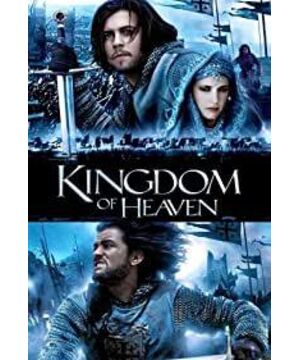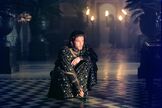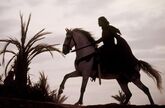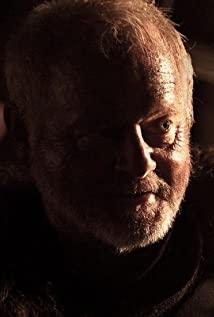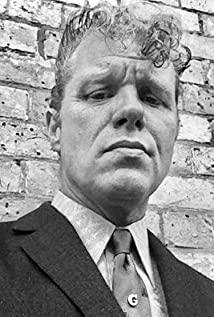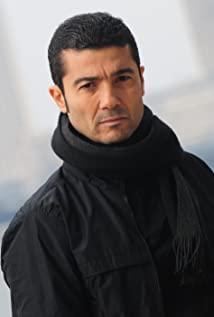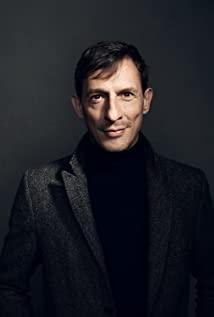This film reproduces the battle between the Crusaders and the Muslim army in 1187 for the holy city of Jerusalem. That year, Mongolian founder Genghis Khan was 25 years old and led the Qiyan Ministry on the grasslands to fight for survival. A few decades later, the Mongolian army also fought near Jerusalem, when the Crusaders wanted to ask the Mongolian army to help retake Jerusalem (1260). The siege scene reproduced in this movie should be very close to the scene of the Mongolian army conquering the world. Stone rappers, fire bombs, naphtha, arrows and crossbows are all fired...
The finale of the siege did not appear until the last 60 minutes. The previous two hours were basically literary. People who are used to watching Hollywood blockbusters may not be able to survive. The director of this film, ridley scott, plays mainstream Hollywood movies, but he likes to go slant. "Hannibal" he directed has a shocking temperament that ordinary Hollywood movies don't have. I think that film is better than "The Silent Lambs". The latter is just a simple play of the morning bell, and "Hannibal" is the sound of ten thousand drums, which is also beyond the usual standard of Hollywood movies. The same goes for "Heavenly Kings". The choice of theme reflects Scott's slant. After 9/11, the American people heard of the discoloration of Muslims in the Middle East, but he engaged in such a theme of the Christian army fighting the Islamic army. And Christianity ended in a disastrous defeat. The Muslim hero Saladin won the victory and regained the holy city that had been occupied by Christians for nearly a hundred years.
Scott is also quite bold. Saladin is not only a Muslim hero, but also an idol of bin Laden and Saddam! The image of Saladin in this film is quite complete! He is not only the commander-in-chief of a mighty division, but also has a deep calm, rational, kind character and chivalry spirit. When others say that victory is determined by God, he believes that victory depends on adequate preparation. When his enemy king got sick, he asked his doctor to see him. This Saladin is consistent with history.
The Crusader Templars who were clamoring for a decisive battle with Saladin’s army were completely contrary to Saladin’s calm, rational, and benevolent style. They rushed into the vast desert to fight Saladin regardless of reality. As a result, Saladin had not been found. All of them were so thirsty that their belly was facing upwards, like a mob, completely incapable of combat. The director omitted the battle between them, and only showed the horror after their entire army was annihilated: corpses were everywhere, crows shrouded the battlefield like black clouds, enjoying a gluttonous meal.
If Europeans can find some psychological comfort, it is that this movie almost fictionally portrays the role of Balian. He is a savior character usually appearing in Hollywood movies. He is a little character with a sad past, but he is arranged by fate and becomes the overall situation. The destiny, he used his conscience, bravery, skills, and appeal to organize 100,000 Christians in Jerusalem to resist the enemy’s attack, resisting the rounds of crazy attacks by the 200,000 Saladin army, and finally “hand over the city and save the people. "In the history of the peace agreement, Saladin pardoned 100,000 Christians and refused to report the original Christian's murder of Muslims. In the film, it was arranged as a good result of Barrian's efforts, not just from Saladin himself. Magnanimous and humanitarian. This is not only to give the American and European audiences a psychological comfort, but also to express the director's good wish: religious tolerance, no need to choke.
If it were not for the director to express his wishes through the exaggerated role of Barrian, the Westerners in this movie would be simply too ugly. The regular army of Templars not only ruined themselves because of their blindness and ignorance, but they were also the culprits who brought in the revenge of Saladin! These desperate and warlike Templars repeatedly killed Muslim merchants in order to start the war, and even killed Saladin's sister. The hero Saladin couldn't bear it and finally wielded his master to seize Jerusalem!
This movie can almost be called a tyrannical rebellion. It is extremely inconsistent with the mainstream American public opinion. It extols the country’s enemies and the heroes of the terrorists untimely. When the country’s cadres have repeatedly ordered to oppose that group of people, this movie is praising the group of people’s ancestors. State officials regarded Muslims as the source of all evil, but this movie exploded the embarrassment of his ancestors, and portrayed Muslims who are friendly, tolerant, pious, rational, and have to fight back as a last resort, and can lay down their hatred after winning.
This is tantamount to a sap that makes people who often listen to the speeches of state cadres go round and round. So we were wrong? It turns out that the comrades of the Crusaders whom we once thought to be sacred should behave so nonsense and perish themselves?
This is a commercial entertainment film, but Comrade Scott has turned it into a preaching vehicle. If the "Gladiator" he directed more than 10 years ago was purely entertainment, then this film has the appearance of entertainment and is an essay on major current issues. Although there are many naive commercial films in the film, it is quite a master on the whole. This film was shot in 2004, and it was only two years since the dust of 9/11 disappeared. No doubt this incident triggered the idea of Comrade Scott to write this paper.
On March 9, 2009, a string of Arabic characters was printed on the cover of Newsweek in the United States. The English in parentheses read: Islamic fundamentalism is a fact in life. We should learn how to get along with it. (Radical islam is a fact of life, learn to live with it.)
It seems that Scott has influenced American public opinion and made it out of paranoia?
View more about Kingdom of Heaven reviews


